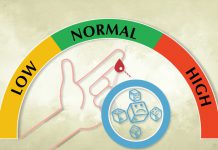Common cold and Diabetes
With monsoon around the corner, sneezes and sniffles will be heard everywhere! The culprit responsible is one of the most common infectious diseases of mankind, which affects anyone and everyone, whether a baby or an adult. Yes, known to be caused by more than 200 viruses which change frequently overtime, “Common cold” continues to be unbeatable with no known cure till date.
When common cold strikes, adults or teenagers soothe their sore throats with hot water gargling, steam inhalation, intake of hot beverages and soups, and in case the cold gets severe, doctors prescribe cough syrups and medications to relieve the symptoms. The cold doesn’t spare newborns too, and is much difficult to manage and ease the discomfort felt by the little ones as their immune system is still developing.
Babies can’t blow their noses therefore usually become uncomfortable with mucus, snuffling, irritability, fever, appetite loss, etc. As heartbreaking as it’s to watch a little one suffering terribly from just a minor cold, other than severe fever and weakness, adding up to the list of adversities faced due to common cold, is the sweet killer disease- Diabetes.
As per the recent research studies, a newborn suffering from common cold in the first few years of their lives are more prone to acquire Type-1 diabetes later in life. Common respiratory infections caused by either the most common group of viruses, Rhinoviruses or due to the second leading causal organism of cold-like symptoms, Enteroviruses, are on radar for research as candidate agents for diabetes triggers!
Cold – Environmental trigger for Diabetes!
Various studies have indicated that these cold viruses directly affect the insulin-producing beta cells in pancreatic islets of the pancreas or induce an inflammation via production of cytokines that damage those cells. They can also activate auto-reactive T cells by molecular mimicry or bystander mechanisms, thus eventually developing islet autoimmunity, which later on fuels diabetes in adulthood.
Since the early immune system of children in the first 6 to 12 months of life is more vulnerable to challenges posed by infectious agents, it has been observed notably, that various instances of concurrent enteroviral infections in this age group causes high islet autoimmunity later.
Common cold is inevitable, and a newborn will be definitely more susceptible to respiratory infections too early in life. Vital antibodies mainly from the mother’s milk build their bodies to fight through these ailments and grow stronger. Neglecting her own well-being, being ignorant to signs of any underlying diseases/disorders, and compromising good hygiene, proper sanitation, and healthy diet definitely puts a mother at risk of acquiring infections, which may cost her baby’s health too. Post-delivery, preventive healthcare testing should be a necessity for mothers with signs of any illness/weakness.
‘The uncommon reality of a most common illness, pleading for a cure since ages; therefore take care of yourself to eventually take care of your newborn!’










